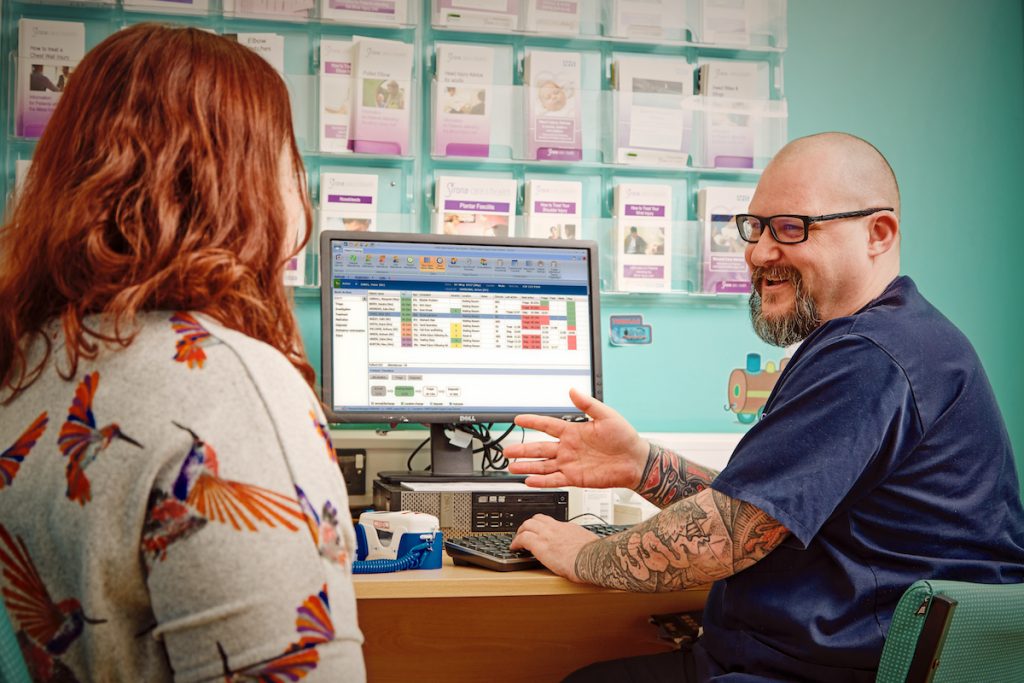The power of cloud computing offers exciting potential for improving patient outcomes in Scotland
The importance of data to protect public health. From tracking and monitoring the spread of the virus to understanding the risk factors for different population groups, data-driven analysis has been a critical tool.
Clinicians have also been more willing than ever to support data sharing to combat this global emergency. More than 1,700 English GP practices came forward to contribute patient data for Co-vid-19 research at the University of Oxford, which supported vital public health disease surveillance efforts, including one of the first studies to investigate risk factors for testing positive for the virus in the community, as well as rapid clinical trials of existing medications to reduce the duration and severity of the virus.
Primary care data has traditionally been rather neglected in health research, yet it is the richest source of good quality longitudinal patient data. In Scotland, the EMIS clinical platform provides primary care systems to 54 per cent of GP practices, processing 2.5 million patient records. My role, as the lead on EMIS-X Analytics (a cloud-based suite of tools capable of making vast amounts of data rapidly available for analysis) is increasingly to demonstrate the enormous potential for a data revolution in healthcare.
While joint controller and data HEALTH sharing agreements for health boards and GPs have been avail-able in Scotland since 2017, the move of primary healthcare data to the cloud will significantly reduce the time delay between entry by a clinician and availability for research, promising near real-time, actionable insights to be derived from health data.
The scalability that cloud provides also enables the joining up of large datasets. Not only is linkage of data crucial for all research going forward, but it is also of up-most importance to support a shift towards truly integrated care.
EMIS’s work with the Open-Safely collaborative – a new trusted research environment being developed by researchers from Oxford University and the London School of Tropical Hygiene and Medicine, commissioned by NHS England – has successfully joined up data from the Office for National Statistics, hospitals and primary care. In this way, it has been able to report on everything from risk factors and outcomes associated with Covid-19, to trends in vaccine uptake.
SPEED AND SCALE: THE IMPORTANCE OF THE CLOUD
Cloud computing is a vital tool, not only in the fight against the pandemic but also to help shape health services, making them more flexible and responsive to individual and population needs.
Scalable, cloud-based data and analytics platforms, provide the powerful processing tools that researchers, healthcare providers, governments and life science organisations need. They make it possible to run complex queries over aggregated datasets at speed.
This can not only highlight those at risk, aid diagnosis or inform interventions; it can also measure the resulting impact and enable the healthcare system to be more agile, responding more quickly and effectively to public health crises like the current pandemic.
In the aftermath of Covid-19, we will need to rapidly escalate adoption of a “cloud-first” approach, so we can fully embed impactful algorithms and artificial intelligence (AI) into public health monitoring and service design, as well as direct care.
ACTIONABLE INSIGHTS
Whatever the technologies behind the scenes, the single most important thing about data analytics is that it must give action-able insights – driving change, whether by clinicians, patients or decision-makers. By integrating analytics tools with operational systems like the electronic health record, we can ensure that analytics are embedded in simple tools for the front line.
Diseases that are notoriously hard to diagnose, such as pancreatic cancer, provide good examples of where the complex analysis of big healthcare datasets could really make a difference. Patients often present with non-specific symptoms in the earlier stages of pancreatic cancer. Because of this, up to 80 per cent of these cases don’t get diagnosed until it’s too far advanced to treat.
Researchers from the London School of Hygiene and Tropical Medicine recently developed an AI tool to analyse primary care data to spot symptom patterns that might indicate a patient has the disease. Their initial study suggested that in some cases the AI could bring forward the diagnosis by almost two years, which could increase survival rates for thousands.
Such an algorithm would need to be embedded in the clinical system to alert clinicians, supporting them to deliver an intervention such as sending a patient for screening.
MOVING BEYOND COVID-19
I hope that both clinicians and patients will have seen the huge benefits of data analytics during the pandemic and that the adoption of data-driven technologies can move forward with greater public trust and understanding.
Of course, we shouldn’t forget that progress during the pandemic has built on the experience of a number of healthcare economies across the UK that already successfully share information, underpinned by data-sharing agreements that have stood the test of time. Going forward, an underlying set of ethical principles should underpin all uses of data: that data should only be used to improve patient outcomes, increase healthcare system efficiency, or improve the clinician’s delivery of care.
The combination of trust, data and powerful cloud technology gives us a momentous opportunity to deliver rapid insight that can transform the health of all of us.
